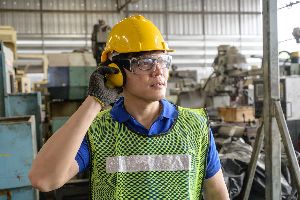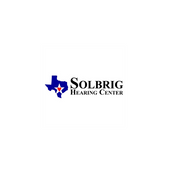A Guide to Hearing Loss in Construction Workers

Hearing loss can occur in people of all backgrounds. However, there are certain risk factors that may increase the likelihood of symptoms. Working in construction can be one such risk factor, but there are ways to treat and prevent issues. Here’s a guide for those who work in the construction industry.
Why Do Construction Workers Experience Noise-Induced Hearing Loss?
Construction workers spend prolonged periods around heavy, loud machinery like jackhammers, saws, and dump trucks. These noises can overwork the tiny hair cells that vibrate within the ear to transmit sounds to the brain. With enough exposure over time, these cells become damaged and die, negatively impacting the vibrations in the ears that transmit sounds.
What Are the Signs of Hearing Loss?

Hearing loss generally comes about gradually, so it’s not always apparent to those who are experiencing it. Signs to look out for include difficulty understanding speech or asking people to repeat themselves constantly, especially around loud noises. You may also need to turn up the volume on your phone, radio, or TV to hear clearly. Some people also experience ringing in the ears or headache or discomfort around loud or high pitched noises.
How Can You Prevent Hearing Loss?
Ear protection and frequent breaks away from noisy areas can reduce the risk for hearing loss around construction sites. When working around any equipment that produces noise above 85 decibels, workers should wear ear covers or plugs to muffle the sound. Additionally, supervisors should rotate who operates loud equipment like jackhammers and saws regularly and put up barriers around loud equipment that runs continuously, like generators, to muffle the sound.
If you notice any of the signs of hearing loss or want to seek preventive care, contact Solbrig Hearing Center in Kerrville, TX. The center offers a full range of services and products to improve hearing outcomes, from testing to hearing aids and other listening devices. Visit the website to see a full selection of options. To request a hearing test, call (830) 895-5900.
About the Business
Have a question? Ask the experts!
Send your question

